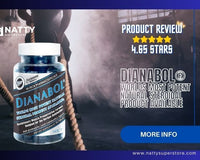Understanding Collagen: Essential for Healthy Aging
Collagen is the most common protein in our bodies and significantly supports our skin, bones, and joints. As we get older, our natural production of collagen decreases, which often leads to wrinkles and joint pain. Consequently, many individuals turn to collagen supplements to help counter these effects of aging.
What is Collagen?
Collagen is a vital protein that primarily strengthens and adds elasticity to our connective tissues. Originating from animals, it is processed into various forms such as powders, capsules, and drinks, thereby making it easier for the body to absorb.
- For the skin: Notably keeps the skin hydrated and elastic, effectively reducing wrinkles and dryness.
- For the joints: It crucially supports healthy cartilage, which cushions the joints.
- For the bones: Plays an essential role in maintaining bone strength and density.
- Furthermore, recent studies suggest that collagen might also enhance muscle mass, improve heart health, and support gut health.
Who Should Consider It?
Collagen supplementation can be particularly beneficial for:
- Those who are aiming to improve their skin's appearance.
- Moreover, people who suffer from joint pain or are keen to maintain joint health.
- Additionally, individuals concerned with preserving their bone strength will find collagen helpful.
- Similarly, athletes or physically active people might appreciate collagen for its benefits in muscle recovery and tissue health.
Benefits of Collagen
Incorporating collagen into your diet offers numerous health advantages:
- Skin Health: Enhances skin hydration and elasticity, thus promoting a more youthful appearance.
- Joint Health: It effectively reduces joint pain and helps maintain healthy cartilage.
- Bone Health: Is crucial for maintaining strong bones.
- Muscle Health: It provides the necessary amino acids needed for muscle repair.
Potential Downsides
Although generally safe, taking it as a supplement comes with a few considerations:
- Some users may encounter mild digestive issues or allergies, particularly to the source of the collagen.
- Additionally, the effectiveness of these supplements can vary depending on factors such as age and overall health.
- Moreover, high-quality collagen supplements can be costly, and consistent usage is essential for observing benefits.
Enhancing Your Health
Integrating this ingredient into your diet can profoundly impact your health:
- Skin Health: It significantly reduces wrinkles and keeps your skin hydrated.
- Joint Mobility: Supports joint function and alleviates discomfort.
- Bone Strength: Regular intake helps maintain bone density.
- Muscle Health: Aids in muscle repair and growth.
In conclusion, this ingredient plays a critical role in various bodily functions, supporting everything from skin elasticity to bone density. With natural collagen production decreasing with age, supplementation offers a proactive strategy to potentially mitigate these effects and enhance overall health and wellness.
Note: This content is for informational purposes only and not intended as medical advice.
For more insights on beneficial ingredients, click here.
König, D., et al. (2018). Study shows collagen supplementation increases bone mineral density in postmenopausal women. Nutrients, 10(1), 97. Available at: https://www.ncbi.nlm.nih.gov/pmc/articles/PMC5793325/
Clark, K. L., et al. (2008). Collagen hydrolysate improves joint pain in athletes with activity-related joint pain. Current Medical Research and Opinion, 24(5), 1485-1496. Available at: https://www.tandfonline.com/doi/abs/10.1185/030079908X291967








